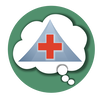"[During my MHWFA course I kept thinking, 'When am I going to use this? It's all great, but I have no idea when I'm going to use it.' Well, since the fire, I have been going back to that course over and over and over again. There's things that we're going to talk about today -- the Lizard Brain and the Wizard Brain, I have probably explained that 50 times [to others affected by the fire] since January." with The Marshall Fire tore through the Colorado communities of Louisville, Superior, and Boulder County, starting just before New Year's Eve 2021-2022. Colorado resident Cathryn Marsh, one of our MHWFA alumni who evacuated with her family during the fire, contacted MHWFA to ask if we could support the community by offering a workshop on trauma healing for those affected by the fires. Here's an excerpt from Cathryn's introduction for our presentation: Cathryn: "It was about June or July 2021 that I was trying to look for how to tie together my wilderness medical training, and this personal trauma work that I had started. So, I started to look for courses that bridged the gap. And strangely enough, I came across Mental Health Wilderness First Aid, and it happened to be in Canada. Because of the pandemic, they had gone online ... [The course] was 4 weeks in November, two and a half hours every week, and I learned all this stuff and I kept thinking, 'When am I going to use this? It's all great, but I have no idea when I'm going to use it.' Well, since the fire, I have been going back to that course over and over and over again. There's things that we're going to talk about today -- the Lizard Brain and the Wizard Brain, I have probably explained that 50 times [to others affected by the fire] since January. How to bring yourself back from that trauma swirl and get grounded, I do that probably 4 or 5 times a day. And then how to 'hold space' for other people, and active listening ... there are really some techniques [we learned] for how to effectively hold space for other people." Daye's presentation covered four topics:
In particular, we talked about common characteristics of activities that promote healing and resilience to the part of the brain affected by trauma: Daye: "This is something that we know about the part of the brain called the limbic system [which is affected by trauma]. The limbic system responds to rhythm, it responds to repetition, and it responds to relationship. So, the part of the brain that initiates the fight/flight/freeze response, especially if it's going through "sticky fight/flight/freeze" [trauma], it will help to regulate this part of the brain to do activities that have rhythm, that have repetition, and especially activities that also have relationship. So, what are some examples? ... there are some activities that we naturally do like going for a walk. We can also return to the breath ... sometimes when we experience stress or trauma, it's almost as if we are holding our breath for a long time. We might feel like we haven't taken a deep breath all day -- or for months. Other things that are naturally healing and regulating for the lizard brain -- things that are rhythmic, repetitive, and relational -- going skiing, going skateboarding; skateboarding's really good for young people; you can see that through a resilience-based lens, it's something that's naturally healing for their brains." Together, we talked about and practiced several different short activities that hit those "rhythmic, repetitive, relational" goals: swimming, paddleboarding, biking, music, prayer, reciting simple math problems. We threw our socks around in sync -- no small task over Zoom! -- and tried out "Tapping" together, which is a simple, evidence-based strategy for regulating the nervous system that can even be fun. Daye additionally covered the topic of supporting children who have experienced of trauma, including the importance of play for the developing and healing child's brain, and Cathryn Marsh provided a multitude of local area resources. A comprehensive document including all presentation notes and resources for those affected by the Marshall Fire is posted directly below.
0 Comments
Your comment will be posted after it is approved.
Leave a Reply. |
Details
AuthorDaye Cooper Hagel is a clinical counsellor, veteran wilderness guide, and director of the Mental Health Wilderness First Aid program on the west coast of British Columbia, Canada. Read more about her and the MHWFA on the About Us page! Archives
July 2022
Categories |
||||||
About Us |
Courses & Events |
|
|
We do not require personal medical information from our students, volunteers,
staff, or contractors as a condition of providing services. |
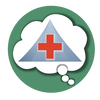
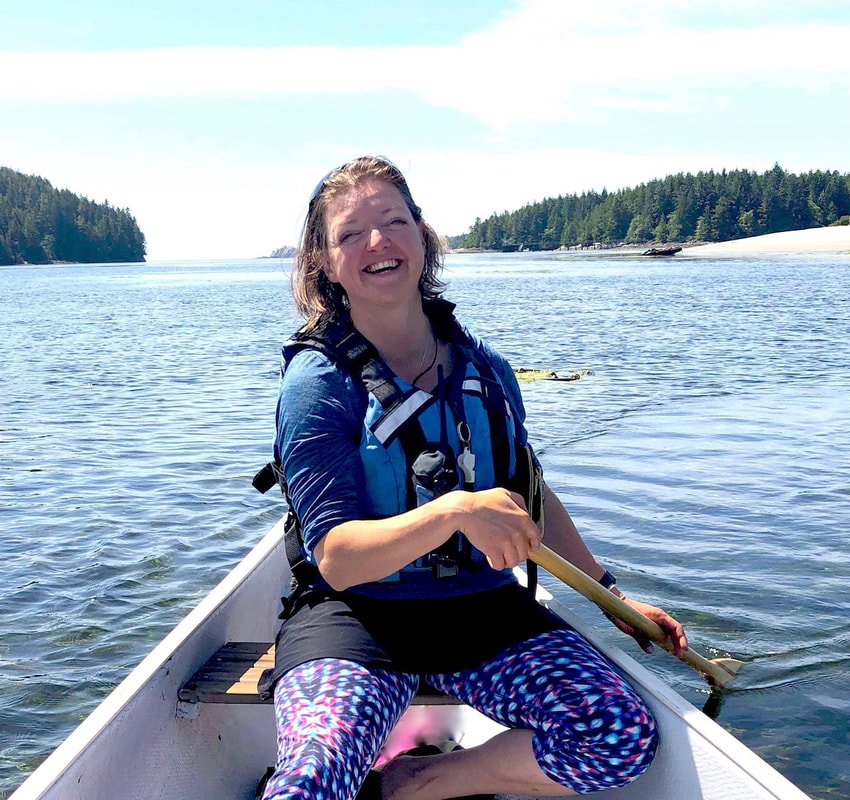
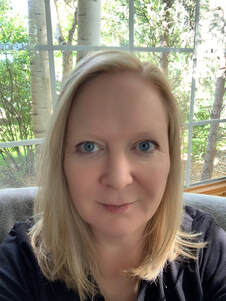
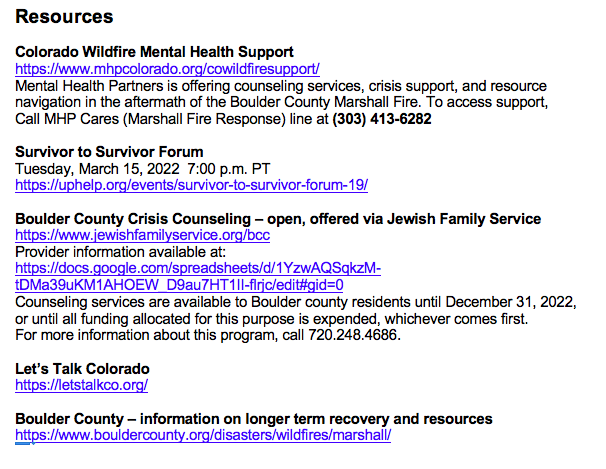
 RSS Feed
RSS Feed
